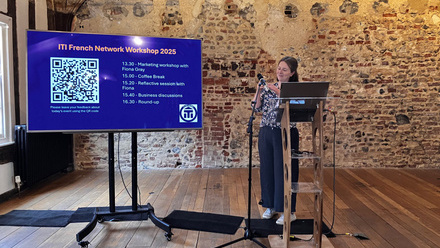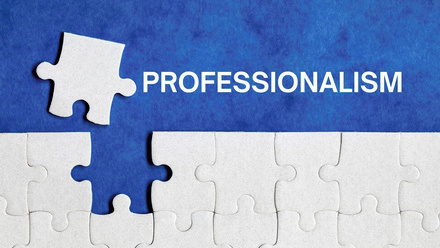Every day's a school day
Learning isn't just for school - we continue learning all our lives. Laura Elvin MITI reflects on the importance of continuing your professional development throughout your career.
I recently had the pleasure of attending an Open University graduation ceremony. The OU is a great proponent of lifelong learning and the honorary graduate of the day, Claudia Hammond, used her address to encourage her audience to be ‘perpetual unofficial students’. It reminded me of what my grandfather said to me when I was heading off to university, many years ago: ‘Try to learn something new every day’.
Born into a poor mining family, my grandfather became the first in the family to go to university and ultimately became Chief Education Officer for south-west England. Whenever I came to visit, he would eagerly enquire about my progress in linguistics and, later, would quiz my boyfriend about his PhD research in immunology, even though – or, perhaps, precisely because – his own knowledge of these fields was very limited. He was genuinely interested in everything there was to learn.
I've never forgotten Grandpa’s advice and even now, before I go to sleep, I reflect on the day and ask myself ‘what did I learn today?’
Today, for example, I’ve learnt about the Old English letter ‘thorn’, the meaning of different codes on Belgian identity cards, the inspection procedure for Fire and Rescue services and the effect of temperature on the sex of crocodile embryos. Am I likely to ever make use of this knowledge again? I’ve no idea! But that doesn’t matter. What some might regard as a random collection of trivia all contributes to the continuous ‘brain-training’ that keeps our neural pathways healthy and active and might even protect us against dementia.
Of course, I’m not suggesting for a moment that everything we learn can be logged as CPD! But plenty of things can, including things that one might not think of at first as ‘work’. As long as an activity has a positive impact on our professional practice, it can almost certainly be justified. Reading an interesting article about the use of AI in translation or a pithy blog by an industry commentator, watching an award-winning movie from the Cannes Film Festival, learning a new language on Duolingo or swapping tips and tricks with peers in a revision club are all fun and enjoyable ways of clocking up the recommended minimum hours.
It's a far cry from my first experience of CPD, as a solicitor, where permissible activities were much more narrowly prescribed and where failure to attain a certain number of hours would lead to the loss of one’s practising certificate. It was not uncommon to see overworked colleagues in an end-of-year scramble to enrol on courses which were of little personal interest or relevance to their work, just to ‘get the points’. This seemed to me to serve little purpose. Happily, these days, the legal profession now also takes a much broader approach to CPD (renamed ‘continuing competence’), more akin to the translation and interpreting approach.
Human beings have an insatiable thirst for knowledge. Perhaps the most significant letter in ‘CPD’ is therefore the C: ‘continuing’. It’s no coincidence that the CPD log on the ITI website is depicted as a circle. Each year we record our hours and progress round the circle… and then we go round again. The wheel keeps on turning and each revolution brings new learning opportunities. As Mahatma Gandhi is alleged to have said: ‘Live as if you were to die tomorrow. Learn as if you were to live forever.’






